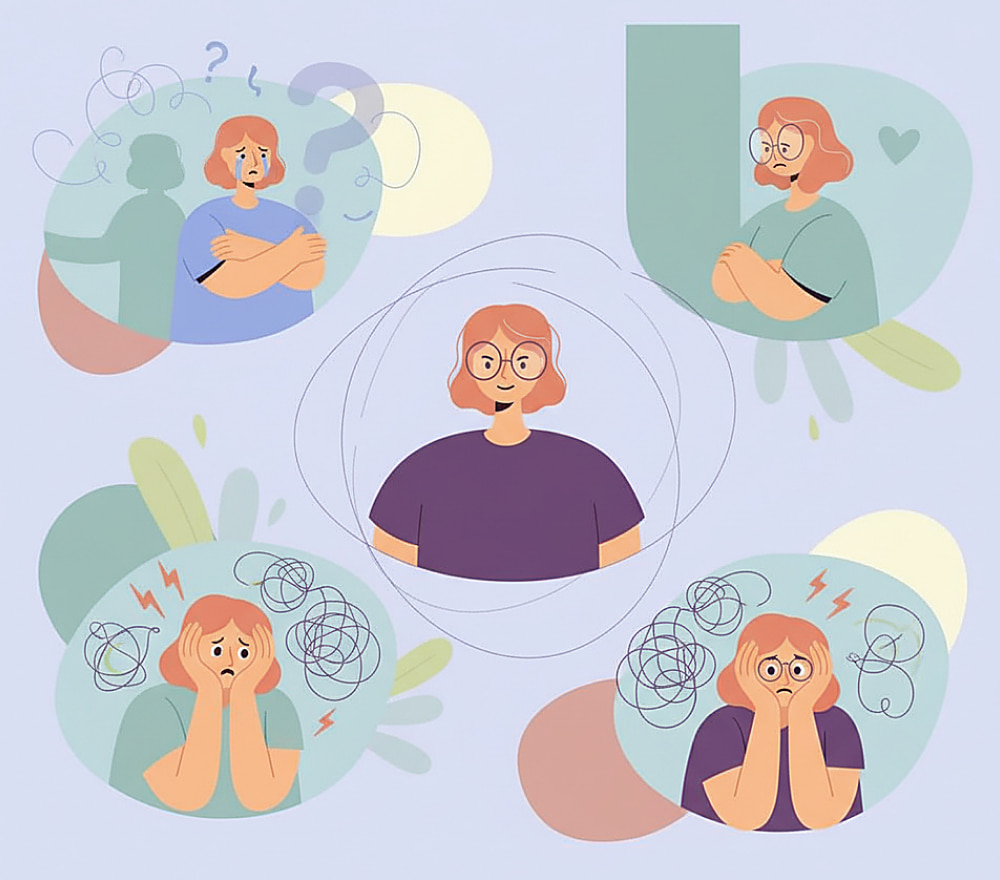Attachment Styles in Love and Relationships: A Full Guide

Discover Different Attachment Styles
Get StartedAttachment theory in adult relationships is a psychological model that explores how individuals form emotional bonds. It originated with John Bowlby's work on child development and later expanded to adult relationships. This theory is crucial for understanding how our early experiences with caregivers shape our interaction patterns in different types of relationships.
The essence of attachment theory is that early interactions create expectations and emotional responses that guide our adult relationships. Recognizing the various attachment styles in romantic relationships can greatly enhance personal growth and relationship satisfaction.
The Four Major Attachment Styles
Understanding the 4 attachment styles in relationships can provide profound insights into one's behavior and interactions. Each style reflects unique patterns of thinking, feeling, and acting in romantic situations.
When it comes to types of attachment styles in relationships, there are primarily four that psychologists recognize. Considered the healthiest, secure attachment style strikes a balance between intimacy and independence. Next, we have anxious attachment, which is marked by high levels of dependency and a pervasive fear of abandonment. The third style, avoidant attachment, is characterized by emotional distance and an emphasis on self-reliance. Lastly, disorganized attachment melds elements of anxiety and avoidance, resulting in unpredictable relationship behaviors.
Recognizing the different attachment styles in adult relationships allows for better self-awareness and communication with partners. It is a step towards healthier emotional connections.
The Importance of Taking a Relationship Attachment Style Quiz
An attachment style quiz for relationships can be an invaluable tool for self-discovery and relationship improvement. By taking such a quiz, you gain a clearer understanding of your inherent attachment type. This understanding can assist in identifying areas that may require personal development.
The quiz reveals patterns that might contribute to unhealthy attachment in relationships, helping individuals make conscious decisions to improve their interactions. It's particularly beneficial for those seeking to enhance the quality of their romantic relationships.
- Discover patterns in how you engage with partners.
- Identify potential triggers and responses in relationships.
- Improve communication and emotional connection.
| Attachment Style | Characteristics |
|---|---|
| Secure | Balanced, trusting, comfortable with intimacy. |
| Anxious | Dependent, seeks approval, fears rejection. |
| Avoidant | Independent, emotionally distant, self-reliant. |
| Disorganized | Erratic, fearful, mixed feelings about relationships. |
Benefits of Understanding Your Attachment Style
Recognizing your attachment in relationships can lead to significant personal and relational growth. It fosters self-awareness, enabling individuals to engage more authentically with their partners.
Awareness of the different attachment styles in relationships can improve conflict resolution by promoting empathy and understanding. It's particularly useful in identifying personal barriers that prevent the formation of fulfilling connections.
- Enhanced emotional intelligence.
- Improved empathy and understanding.
- Increased relationship satisfaction.
FAQs About Relationship Attachment Style Quizzes
Here we address some commonly asked questions about relationship attachment style test and the process of testing.
- What is the best way to approach a relationship attachment style quiz?
The best approach is with an open mind and a willingness to learn about yourself. This ensures the most insightful and accurate results.
- How can understanding my attachment type benefit my relationship?
Recognizing your attachment style can improve communication, reduce misunderstandings, and provide clarity about emotional needs in relationships.
- Are attachment style quizzes reliable?
Many attachment style quizzes are rooted in psychological research, but they should be seen as tools for insight rather than definitive diagnoses.
- Can attachment styles change over time?
Yes, attachment styles can evolve with self-awareness, therapy, and personal development.
- Is it possible to have a mix of attachment styles?
While most people exhibit a dominant attachment style, traits from other styles may appear depending on context and relationship dynamics.
Conclusion
In summary, a relationship attachment styles quiz offers valuable insight into your emotional landscape, providing a pathway to better understanding and improving connection patterns. By exploring the dynamics of attachment theory in adult relationships, individuals are empowered to cultivate healthier, more satisfying relationships with partners. Awareness and commitment to self-improvement are key to transcending the limits of our inherent attachment behaviors.
